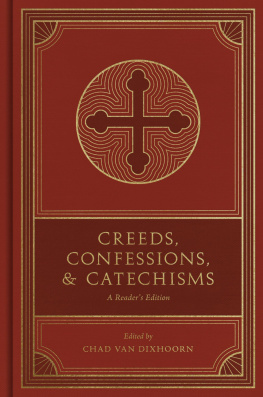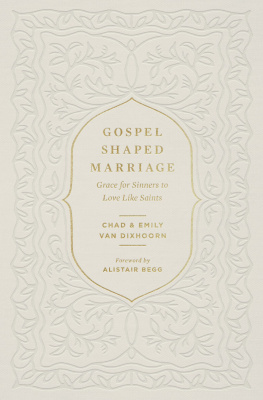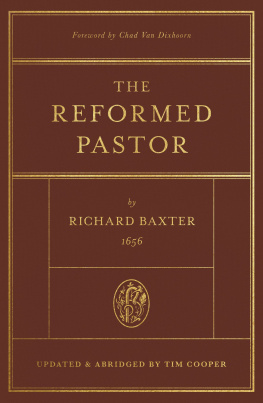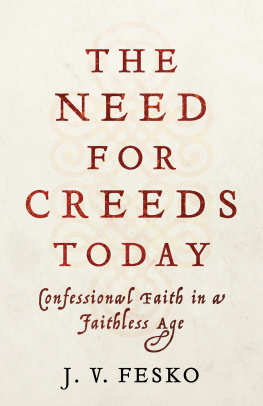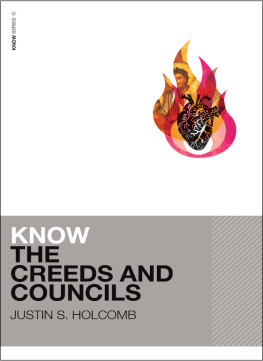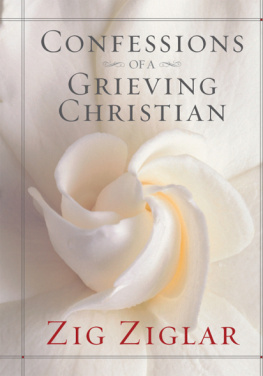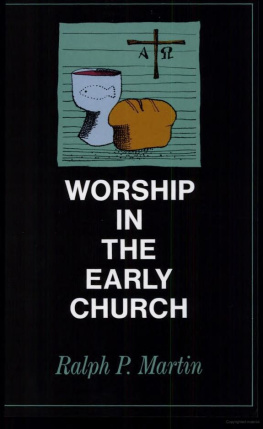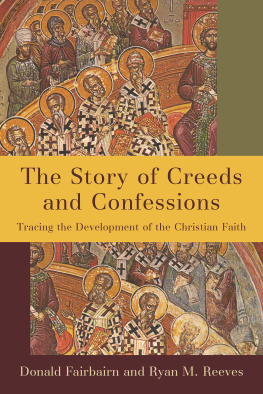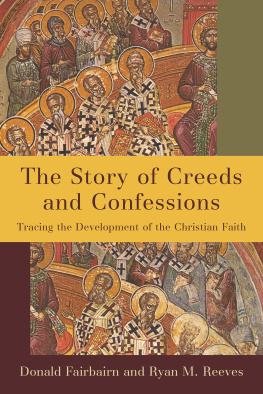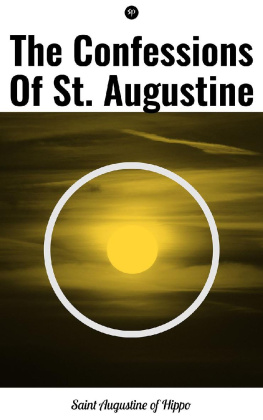Table of Contents
Landmarks
Introduction
The Westminster Catechisms (both written in 1647) offer questions and answers covering a full range of doctrinal topics, but with special focus on the doctrine of salvation and the Christian life. The voice of the catechisms is, for the most part, in the third person, declaring what Gods Word says, instead of the first person, sharing what Christians believe. Nonetheless, passages often carry a tone of praise, awe, or exhortation.
The catechisms are designed to be companion texts to the Westminster Confession of Faith. Together they form a relative rarity in the Reformation: a confessional-catechetical package designed to fit together. In fact, parallel presentations of the 1646 Confession and the 1647 Catechisms show extensive verbal dependence of the later texts on the earlier: the Shorter Catechism leans on the Larger; the Larger Catechism is derived largely from the Confession.
Of these three texts, the Larger Catechism is the least known and most forgotten in the church today. The Larger Catechism is actually the lengthiest text among the Westminster Standards. What is more, its statements benefit from an additional year of the Westminster Assemblys debates. The Larger Catechism offers the ripest fruit of the assemblys deliberations but lives in the shadows of the Confession of Faith. Admittedly, its formulations mostly mirror that of the confession, yet there are places in which it further develops its ideas in the confession, not least in the ethical realm. In fact, unique to the Larger Catechism is a thoughtful interpretive guide to the Ten Commandments, putting into words the principles of interpretation commonly used among Reformed theologians.
The structure of the catechisms is at once more straightforward yet also subtler than that of the confession. On the face of both catechisms is a programmatic statement: What do the Scriptures principally teach? The Scriptures principally teach, what man is to believe concerning God, and what duty God requires of man ( WLC 5; WSC 3). The remainder of each catechism discusses who God is and what he has done. The catechisms then explain what Christians must do in response.
Nonetheless, if this is their overt structure, it is also true that both catechisms follow a traditional pattern of expounding the Apostles Creed (although the creed is not mentioned explicitly), the Ten Commandments, and the Lords Prayer. This structure is significant, as the focus on the law and on Christian piety gives these texts moral and spiritual emphases not found in the Westminster Confession. As well, the Larger Catechism offers an ecclesial perspective distinct from the more individualist emphasis of the Shorter Catechism, resulting in an accent on the practical importance of church life for the Christian community.
The Nicene Creed
I believe in one God, the Father Almighty,
Maker of heaven and earth, and of all things visible and invisible.
And in one Lord Jesus Christ, the only-begotten Son of God,
begotten of the Father before all worlds;
God of God, Light of Light, very God of very God;
begotten, not made, being of one substance with the Father,
by whom all things were made.
Who, for us men and for our salvation,
came down from heaven
and was incarnate by the Holy Spirit of the Virgin Mary,
and was made man;
and was crucified also for us under Pontius Pilate;
he suffered and was buried;
and the third day he rose again, according to the Scriptures;
and ascended into heaven, and sits on the right hand of the Father;
and he shall come again, with glory, to judge the living and the dead;
whose kingdom shall have no end.
And I believe in the Holy Spirit, the Lord and Giver of life;
who proceeds from the Father and the Son;
who with the Father and the Son together is worshiped and glorified;
who spoke by the prophets.
And I believe in one holy catholic and apostolic church.
I acknowledge one baptism for the remission of sins;
and I look for the resurrection of the dead,
and the life of the world to come. Amen.
Catholic means universal; that is, there is one church across all times, places, and peoples.
Contents
Creeds, Confessions, and Catechisms
A Readers Edition
Edited by Chad Van Dixhoorn
The Heidelberg Catechism
Lords Day 1
1. What is your only comfort in life and in death?
That I am not my own, a but belongbody and soul, in life and in death b to my faithful Savior, Jesus Christ. c
He has fully paid for all my sins with his precious blood, d and has delivered me from the tyranny of the devil. e He also watches over me in such a way f that not a hair can fall from my head without the will of my Father in heaven; g in fact, all things must work together for my salvation. h
Because I belong to him, Christ, by his Holy Spirit, also assures me of eternal life i and makes me wholeheartedly willing and ready from now on to live for him. j
a 1 Cor. 6:1920 b Rom. 14:79 c 1 Cor. 3:23; Titus 2:14 d 1 Pet. 1:1819; 1 John 1:79; 2:2 e John 8:3436; Heb. 2:1415; 1 John 3:111 f John 6:3940; 10:2730; 2 Thess. 3:3; 1 Pet. 1:5 g Matt. 10:2931; Luke 21:1618 h Rom. 8:28 i Rom. 8:1516; 2 Cor. 1:2122; 5:5; Eph. 1:1314 j Rom. 8:117
2. How many things must you know to live and die in the joy of this comfort?
Three: first, how great my sin and misery are; a second, how I am delivered from all my sins and misery; b third, how I am to thank God for such deliverance. c
a Rom. 3:910; 1 John 1:10 b John 17:3; Acts 4:12; 10:43 c Matt. 5:16; Rom. 6:13; Eph. 5:810; 2 Tim. 2:15; 1 Pet. 2:910
Lords Day 2
3. How do you come to know your misery?
The law of God tells me. a
a Rom. 3:20; 7:725
4. What does Gods law require of us?
Christ teaches us this in summary in Matthew 22:3740: You shall love the Lord your God with all your heart and with all your soul and with all your mind, and with all your strength. a This is the greatest and first commandment. And a second is like it: You shall love your neighbor as yourself. b On these two commandments hang all the law and the Prophets.
a Deut. 6:5 b Lev. 19:18
5. Can you live up to all this perfectly?
No. a I am inclined by nature to hate God and my neighbor. b
a Rom. 3:920, 23; 1 John 1:8, 10 b Gen. 6:5; Jer. 17:9; Rom. 7:2324; 8:7; Eph. 2:13; Titus 3:3
Lords Day 3
6. Did God create man so wicked and perverse?
No. God created man good a and in his own image, b that is, in true righteousness and holiness, c so that he might truly know God his creator, d love him with all his heart, and live with God in eternal happiness, for his praise and glory. e
a Gen. 1:31 b Gen. 1:2627 c Eph. 4:24 d Col. 3:10 e Ps. 8:19
7. Then where does mans corrupt nature come from?
From the fall and disobedience of our first parents, Adam and Eve, in Paradise. a
This fall has so poisoned our nature b that we are all conceived and born in sin. c
a Gen. 3:124 b Rom. 5:12, 1819 c Ps. 51:5
8. But are we so corrupt that we are totally unable to do any good and inclined toward all evil?
Yes, a unless we are born again by the Spirit of God. b
a Gen. 6:5; 8:21; Job 14:4; Isa. 53:6 b John 3:35
Lords Day 4
9. But doesnt God do man an injustice by requiring in his law what man is unable to do?
No, God created man with the ability to keep the law. a Man, however, at the instigation of the devil, b in willful disobedience, c robbed himself and all his descendants of these gifts. d
a Gen. 1:31; Eph. 4:24 b Gen. 3:13; John 8:44 c Gen. 3:6 d Rom. 5:12, 1819
10. Will God permit such disobedience and rebellion to go unpunished?
Certainly not. He is terribly angry with the sin we are born with as well as our actual sins. God will punish them by a just judgment both now and in eternity, a having declared: Cursed is everyone who does not observe and obey all the things written in the book of the law. b

